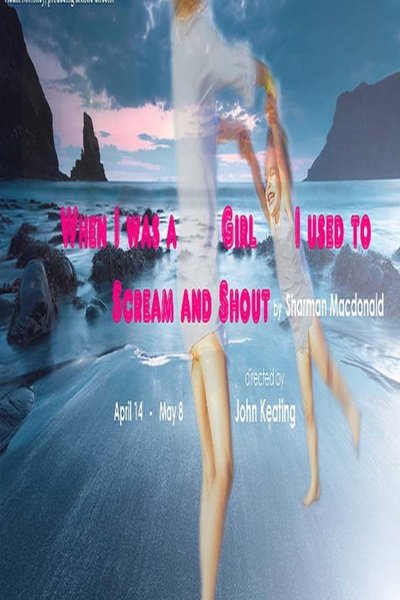
Critic Reviews (14)
"While you’ll feel cleansed by the healing conclusion, getting there requires immersion in a churning sea of teenage sexuality, parental expectations and maternal sacrifice…Reversals and reconciliations punctuate Ms. Macdonald’s nonlinear mélange of flinty wit and Scottish idioms, directed with dexterity by John Keating...Fallen Angels devotes itself to Irish and British plays written by and about women, and this production is a worthy exemplar of its mission."
Read more
"Acclaimed when first presented in 1984...the play is less impressive now, because the subject matter has lost its novelty value--but there are other problems as well. For one thing, sexuality is the only thing anyone talks, to the point of near monotony...John Keating's direction could have picked up the pace a little bit, but he gets fine work from Moloney...For all their screaming and shouting, Fiona and Morag aren't terribly interesting people and it takes too long to play out their drama."
Read more
"In 1984, it probably played forcefully as a necessary feminist history play...But that sort of innovation dates quickly...Under John Keating's adequate direction, the performers all do the best they can, and they're able to keep ‘When I Was a Girl’ sufficiently engaging on the surface...If you're still able to appreciate Macdonald's play as a tribute to what was, you remain distracted by its unwillingness to dive down to explore the depths.”
Read more
"While the play is now very much a period piece, expressing views little held by women, it very successfully delineates a caustic mother-daughter relationship and is extremely detailed about the problems between them...The play is a time capsule of attitudes and mores from two generations ago...Director John Keating has obtained sharp portrayals from his quartet of actors, though some of the choices seem problematic."
Read more
"Playwright Sharman Macdonald handles delicate coming-of-age issues and prepubescent misconceptions about sex with humor and tact while also baring the hurt, shame, guilt, and self-doubt and loathing that manifests from a sexually repressed upbringing, and under the direction of John Keating, the cast expresses a bold and loyal commitment to these themes...Any audience member--even those without the memories of a teenage girl--will be able to empathize."
Read more
"The frequent jumping around in time is a structural convention that drains the play of dramatic thrust. Also off-putting is the characters’ habit of making set speeches (occasionally pretty funny, I admit) rather than engaging in conversation...The most intrusive examples arrive toward the end when the 15-year-old Fiona repeatedly addresses God. Thanks to Macdonald’s lusty writing, some of this is worth hearing but it fails to move the drama needle very far."
Read more
"A wonderfully written play about mother-daughter relationships, with some wonderful performances…The problem is that Ms. Kreinik neither gains our sympathy or our caring. We never really know what guides her except by the words of the playwright, which seem to clash with her performance...I do recommend seeing this because there is more good than not and the play is well written though I would have preferred a better ending."
Read more
"Macdonald is somewhat verbose. The piece could successfully be cut. Kreinik’s Fiona is the weak link. The actress does only a yeoman-like job. Watkins’s Vari exudes life force. Watkins has terrific stage presence, inhabiting her wry, resigned character with credibility and warmth. The piece revolves around Moloney’s strong, nuanced performance. Here we see thinking and feeling evolve before us."
Read more






